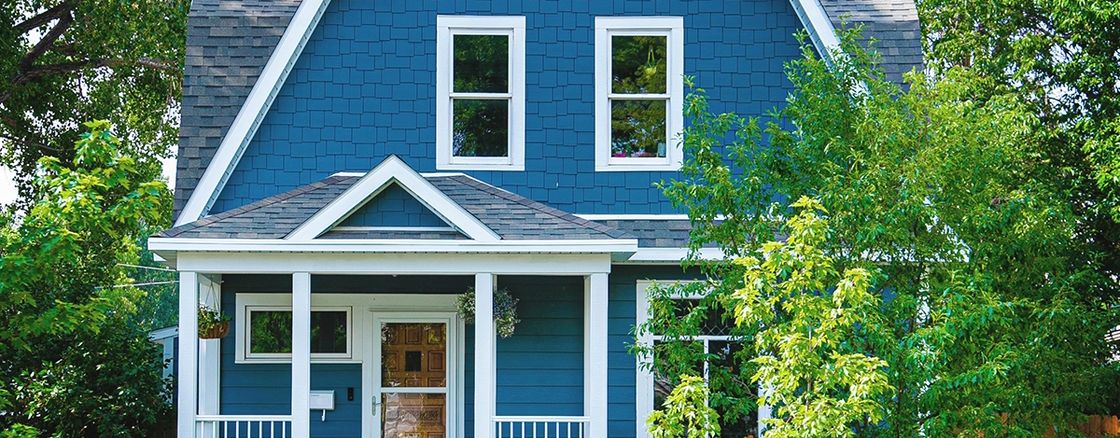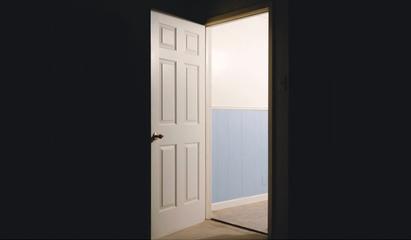House-Hunting Checklist
Written by:
Patrick Boyaggi
Patrick Boyaggi
CEO an Co-Founder
Patrick is the Co-Founder and CEO of Own Up. He has a wealth of experience and knowledge as a mortgage executive.
See full bio

Buying a home is a big decision, and before you even begin looking, there are a lot of little decisions you need to make. For example, how much house can you afford? Is now the best time to buy? What neighborhood do you want to live in? What is the potential for resale in the future?
While many of us consider these factors before we begin the house-hunting process, putting it into practice isn’t always as straightforward – it’s easy to get excited about a home without doing proper due diligence, especially in today’s highly competitive real estate market that encourages buyers to act quickly without full consideration.
For example, many people fail to consider local school systems, especially if they don’t have or plan to have kids. Local schools will affect the resale value of your home, and if you don’t plan on living in the home for the rest of your life, at some point, you will need to consider resale.
Before you start touring homes, it’s important to lay out all the dealbreakers, must-haves, and bonus points ahead of time. This can help ensure you’re looking at the right properties, which can save time and possible strife in the future.
If you’re new to the home buying process or need a refresher on what to consider, we’ve got you covered. Let’s take a look at what you need to know before and during the house-hunting process.
Before You Begin
There are a few steps to take before taking that first home tour. Number one? Determining your budget. How much house can you afford? Knowing how much you want or are able to spend will give you a firm grasp of what you can get for your budget. Take a look at your finances and think about how much you are comfortable spending.
Once you’ve done your own financial scan, you’ll want to get pre-approved by a mortgage lender. This gives you the freedom to make a decision as soon as you’ve found your dream home, and in today’s tight, competitive market, that could be the difference between getting your top choice and losing out to another bid.
Many people begin the process of mortgage pre-approval before they begin house-hunting. Of course, you don’t have to get involved with a lender at this point in the home buying process. However, a dedicated mortgage specialist will give you a more accurate idea of what home prices you can actually afford.
Beyond the list price of the home, there are other cost factors to consider. For example, you need to account for property taxes, home insurance, and, if applicable, mortgage insurance to determine how much mortgage you can afford on a monthly basis.
Have you considered how much you are willing to spend per month on your mortgage? A mortgage specialist can give you a rough idea of how much each price point will cost you per month. Having this detailed information will give you more confidence and insight while house-hunting.
Speaking with a realtor who knows the housing market in your area can also be a huge help in determining what’s realistic based on your price point. You may also find it helpful to look at real estate market data on your own to get an understanding of the landscape.
Your Dream Home Checklist
Before you begin any walk-throughs, it’s important to know what you are looking for in a home. Most importantly, you need to define any must-haves or non-negotiables in your potential home. You don’t want to find your dream home only to learn it’s in a bad school district. Doing this will also help you narrow your search, so you don’t end up browsing dozens of available houses that don’t match your wants.
Some things you should include in your wish list are:
- What part of town you want to live in, factoring in considerations like where you work or the school district
- What price range you want to stay in
- The overall size of the home, lot, and yard space
- How many bedrooms and bathrooms you must have
- Additional rooms, such as a bonus room or a garage
- Whether you want a new build or an older home
- Which type of house you want (one-story, two-story, townhouse, mobile home, etc.)
- Whether you’d be willing to do fix-up work, and if so, what your budget is for repairs
- Home systems (like A/C, security systems, refrigerators, etc.)
Once you’ve created your wish list and have clearly defined your “wants” vs. “needs”, you’ll be able to focus on the smaller differentiating factors such as a home’s curb appeal or minor improvements.
Important Questions to Ask
Now that you have a clear vision of what you are looking for in a home, it’s important to review the key questions you should ask when touring a house. Knowing what questions you want to ask ahead of visiting a home will help you make the most of that time by gaining as much information as you can so that you can be aware of the important details and make an informed and confident decision. You can ask the seller or selling agent these questions to find out more about the home and what buying it would look like. You can also have your real estate agent ask these questions on your behalf.
Some common questions you should consider asking include:
- Why is the seller selling? - You might not be able to find out, but the answer to this question might make you think twice about making an offer on the home. For example, maybe the seller wants to leave because the neighbors are loud or messy.
- Is the home being sold “as is”? - If a home is being sold “as is,” the seller is not planning on doing any additional work or repairs on the home. If you notice something that needs to be fixed, this work will be your responsibility.
- Have other offers already been made? - Understanding what the competition looks like can help you make a better, more informed offer. For example, if no one has made an offer on the home, you will likely have more room to negotiate a lower price. On the other hand, if there are a lot of offers, you might have to make your “highest and best” offer.
- When are offers due? - If you are touring a home with a lot of interest and competition, the seller will likely set a deadline for offers. If you’re interested, you won’t want to miss this deadline.
Visiting a Potential Home
Once you are ready to begin house-hunting, we’ve curated the perfect house-hunting checklist to help you map out everything you should be thinking about as you go. This checklist will make comparing homes much easier and ensure that nothing important gets overlooked.
Download a printable version of the checklist here and bring it to your next home visit. Beyond this house-hunting checklist, here are some things you should be on the lookout for while you tour homes.
What to Look for on the Inside
You have your house-hunting checklist in hand, and you are touring a promising home, but there are some additional details you should pay close attention to. For example, have you found extra rooms or spaces that weren’t advertised on the listing? Finding an extra bedroom or bathroom might seem like a stroke of good luck, but if it wasn’t advertised in the listing, it rarely is.
Unpermitted additions can cost you big time. Typically, if an extra bathroom or space is not listed in the home’s MLS listing, it means that it was added on without the city’s knowledge. There are a few reasons this can present a problem for you. One, the city could fine you for not having the proper permits. Two, your property taxes will likely increase and throw off any mortgage estimate you are working with. And finally, unpermitted work can be dangerous and lead to injury or property damage.
If you find extra spaces, make sure they are properly permitted before you agree to buy the house.
Another important aspect of the interior to pay attention to is the floors and walls. Do you notice uneven or raised flooring? Can you see a crack in the wall? Sometimes these issues are minor with no cause for concern. However, in other cases, these issues can be indicative of major structural or water issues with the home.
Before you close on a house, you should have a thorough inspection. However, in today’s competitive market, many people are waiving their inspection contingencies to put forward a more competitive offer. We don’t recommend waiving an inspection contingency, especially if you notice raised floors or cracked walls.
What to Look for on the Outside
Most people assume that simple landscaping services can handle most outdoor issues. As a result, the exterior of a home is seldom considered with as much attention to detail as the interior. However, the outside of a home is vital, and if you buy a home with outdoor issues, it could end up costing you a lot of money and stress.
The first thing you should closely look at outside is the lawn. A good lawn is indicative of more than just curb appeal. Do you notice standing water on the lawn? Can you smell an odor? Standing water could be a sign of a grading issue and can lead to interior flooding, especially if you have a basement. Odors from the yard can also indicate an issue with a sewer line, which can be costly to fix.
Do you have the ability to make future changes? This is a good question to ask the listing agent or seller. In some cases, you might not be able to add the deck or pool you were envisioning. Each municipality has its own local regulations, and you could even be subject to the bylaws of an HOA. Make sure you understand what is and isn’t possible before you buy a home.
Finally, take a good look at the surrounding community and your neighbors. Are the homes around yours well-kept and of a similar value? Your home’s value is directly tied to the value of the surrounding homes. You might want to think twice about purchasing a home that is far more expensive than the other homes in the neighborhood. You will have a difficult time reselling a home that is not comparable to its neighbors.
Additionally, you want to make sure that the neighborhood you are living in is aligned with your lifestyle. Are you planning on having kids? Are you looking for a quiet community to retire in? These things can greatly affect the type of community you want to live in.
Our Mission: Informed House-Hunting
At Own Up, we believe that education is the key to empowerment and are dedicated to providing consumers with the right resources and information they need to make one of life’s biggest decisions with confidence. If you’re looking to start your home buying journey, review our home buyer resources and home buying checklist - or feel free to give us a call.


